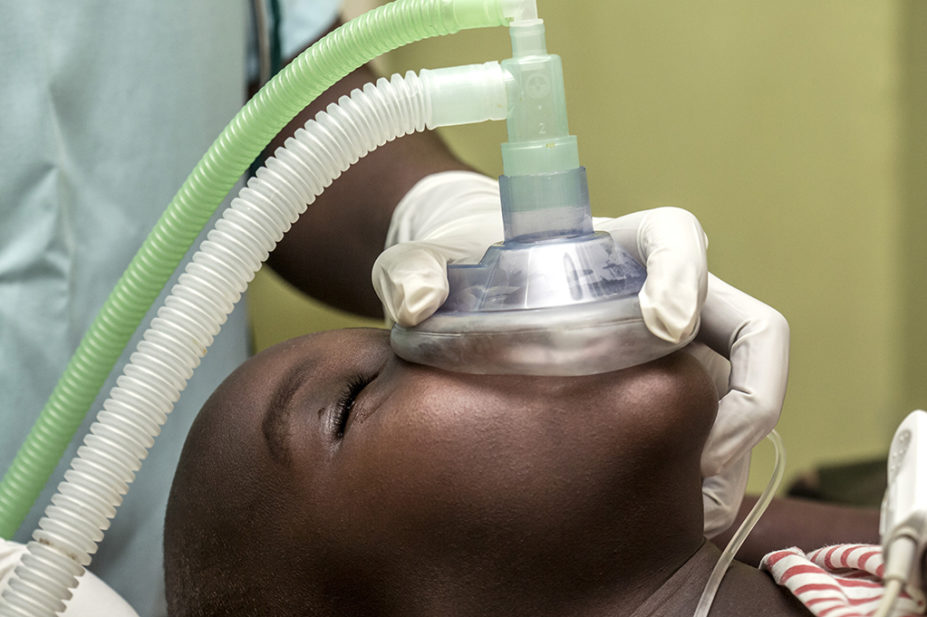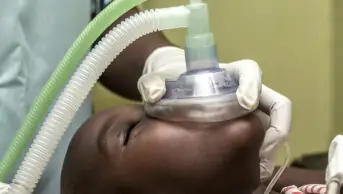
MAURO FERMARIELLO / SCIENCE PHOTO LIBRARY
Desflurane, a high carbon-footprint anaesthetic gas, will be decommissioned for use across NHS England by early 2024.
The gas, which is used for general anaesthesia, is known to be carbon intensive compared to equivalent gases, such as sevoflurane, and has the highest global warming potential of all the anaesthetic gases.
In October 2020, as part of its pledge to be net zero by 2040, NHS England set a target to cut the use of desflurane from 20% of all volatile gas use by volume in 2020/2021, to 10% in 2021/2022, across all NHS providers.
Minutes from an NHS England and NHS Improvement board meeting, held on 30 September 2021, show that this target was met in autumn 2021, six months ahead of schedule.
In a blog published on its website on 13 January 2023, NHS England announced the full decommissioning of desflurane “by early 2024”, a decision which it says has the support of the Royal College of Anaesthetists (RCoA) and the Association of Anaesthetists (AoA).
The blog — authored by Claire Foreman, director of medicines policy and strategy at NHS England; Ramani Moonesinghe, professor of peri-operative medicine at University College London; and Nick Watts, chief sustainability officer for NHS England — said desflurane would only be used in “exceptional clinical circumstances”.
“The good news is that safe and appropriate alternatives with a significantly lower global warming potential exist. These include alternative general anaesthetic gases, and alternative anaesthetic techniques including regional anaesthesia,” it said.
To date, more than 40 trusts in England have stopped using desflurane, and it currently makes up just 3% of anaesthetic gas use across the NHS.
A joint statement from the RCoA and AoA, published on 13 January 2023, said: “We support the decommissioning of desflurane given the availability of clinically safe, more environmentally friendly, and cost-effective alternatives.”
Commenting on the decision, Matthew Davies, president of the AoA, said: “This is a hugely significant achievement which would not have been possible without the support of our members who are working incredibly hard to deliver a greener health service by moving away from the routine use of desflurane.”
James Davies, director for England at the Royal Pharmaceutical Society, said: “Our sustainability policy highlights that among those inhalational agents commonly used as a part of everyday surgeries, desflurane is most damaging to the environment. We’re therefore delighted that NHS England has taken this step, especially considering that anaesthetic gases alone are responsible for over 2% of all NHS emissions.
“We also know that, across the UK, pharmacists in anaesthetics departments are taking a leading role in their multidisciplinary teams to help towards reducing gas usage, minimising waste, reusing and recycling. Together these actions play an important part in helping the NHS reach its net zero ambitions.”


